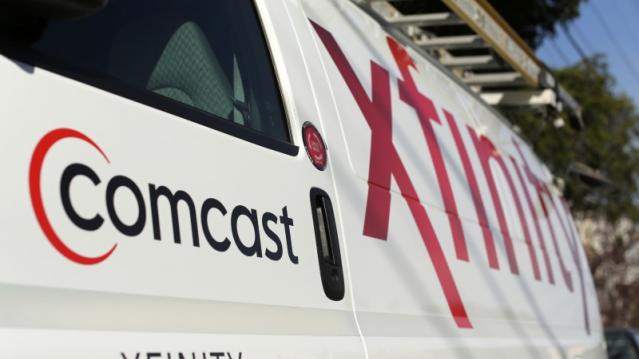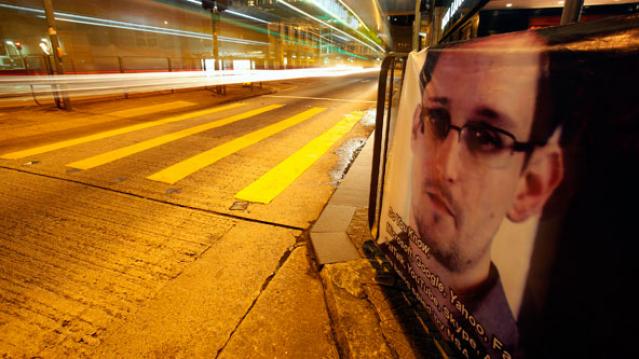Obama Faces Widespread Public Distrust on Iran Deal
President Obama will try to drum up support for the U.S.-Iran nuclear deal Wednesday afternoon at a news conference. But with widespread public disdain and distrust of Iran, Obama may have trouble convincing Americans of the wisdom of dealing with a long-time arch enemy in the Middle East.
The U.S. and Iran on Tuesday announced an agreement that would potentially block Iran’s development of a nuclear weapon for at least a decade while lifting international economic sanctions against Tehran. However, a new AP-GfK poll that was conducted just ahead of the announcement found that Americans only narrowly back diplomatic relations with the hardline Islamic government, and many want to see the sanctions kept in place.
Related: The 8 Most Important Things to Know About the Iran Nuclear Deal
Just 51 percent of those interviewed said the U.S. should have diplomatic relations with Iran while 45 percent said it shouldn’t. At the same time, 77 percent of those interviewed said the harsh U.S. and international economic sanctions against Iran should be preserved at current levels or even increased.
Only 12 percent of those interviewed thought sanctions should be decreased and seven percent said they should be eliminated altogether.
The public’s wariness and distrust of dating back to the 1979 Iranian revolution and U.S. hostage crisis matches the reception the nuclear agreement has received on Capitol Hill where most Republicans and some Democrats say they fear Obama has conceded too much to a country that has fomented terrorist activities throughout the Middle East and has repeatedly vowed to destroy Israel.
Fifty-six percent of Americans consider Iran to be an enemy, according to the poll conducted last Thursday through Monday, while an additional 31 percent consider Iran to be unfriendly but not an enemy. More than 70 percent of Republicans, half of all independents and 45 percent of Democrats described Iran as the enemy.
Related: Clinton Cautious in Her Praise of a Nuclear Deal She Helped to Orchestrate
Before the agreement was announced, six in ten Americans said they disapproved of Obama's handling of the U.S. relationship with Iran, while just over a third approved.
Obama is likely to prevail in pushing the nuclear non-proliferation agreement through Congress over the next two months, despite near-unanimous opposition from Senate Majority Leader Mitch McConnell, House Speaker John Boehner and other leaders and rank and file Republicans. Still, he will need to hold in place at least 34 of the 46 Democrats in the Senate to create a veto-proof firewall in the event Republicans push through a resolution of disapproval of the nuclear deal.
That means that Obama cannot afford any more than 12 Democratic defections to keep the agreement alive. Yesterday, Obama and Vice President Joe Biden began working the phones to shore up support on Capitol Hill, and the president will continue that effort during this afternoon’s White House press conference.
During an interview yesterday with Tom Friedman of The New York Times, Obama stressed that the deal prevented a pathway for Iran to develop a nuclear weapon while making it clear he shared Americans’ distrust of the Iranian government and had limited expectations of improved relations down the road.
Related: Iran Agrees to Limit Nuclear Weapon in Historic Deal
When announcing the deal yesterday, Obama said, “This deal is not built on trust -- it's built on verification…. We will, for the first time, be in a position to verify that Iran is meeting all of these commitments. International nuclear inspectors will have access to Iran's nuclear program -- where necessary, when necessary. This is the most comprehensive and intrusive verification regime that we have ever negotiated. If Iran tries to divert raw materials to covert facilities, inspectors will be able to access any suspicious locations.”
Comcast to Cut the Cord with Time Warner

Comcast is dropping its merger with Time Warner after a year of regulatory pushback, according to Bloomberg. The news wire's unnamed sources say there will be an announcement tomorrow.
In today's changing media landscape it is not really clear what the preemptive breakup of a media megacorp (formed from mere media titans) will mean for consumers, especially in the face of Verizon's push to slim down its bundled offerings, the new ala carte service from HBO and the continued expansion of Netflix's original programming. As more and more people cut the cord, the market for traditional cable TV is eroding, and more consumers opt simply for an Internet connection.
Even without that, Comcast dropping its deal probably will have no impact at all for the average cable subscriber, given the already segregated monopolies allowed individual cable companies. So, unless you own stock in either of these companies, this is pretty much just more status quo in a rapidly changing market.
Can Low Self-Control Turn You Into Edward Snowden?

Be very wary if your employer asks you to take a test and then says please put on this cap. The cap could have sensors measuring your “self-control,” which researchers at Iowa State University have connected to—cybersecurity.
Yup—this wasn’t about eating the last cookie, having sex with a stranger, or taking a hit from some unknown new drug just because your friend said it was an amazing experience. The test measures how long someone hesitates before doing something risky or wrong.
Hmm. Maybe I’ll wait a few seconds before robbing that jewelry store! If they waited, the researchers determined that the employees were considering the consequences of their actions and therefore had higher self-control than those who simply filled their duffle bag with whatever bling was in sight.
Those with higher self-control were deemed better cyber security risks than the low self-control group.
But who knows? Maybe the high group was just casing the joint and calculating how much they could carry without getting caught. Or maybe they were searching for the largest unflawed diamond in the case that could be hidden in their pocket!
So much for brainwaves.
These Students Are Making Even More Than They Expect After Graduation
College students who major in STEM fields generally know that they can make more money than their peers once they graduate, but they don’t know how much more.
Turns out, those students majoring in science, technology, engineering and math, actually have starting salaries that are higher than expected, according to a new report by the National Association of Colleges and Employers.
Engineering majors, for example, expect to earn $56,000, but actually receive 15.5 percent more than that, with starting salaries average nearly $65,000. Computer Science majors expect to make around $51,000, but receive 22 percent for an average starting salary of $62,000.
Chemistry majors have the largest gap between expectations and reality: They expect to earn an average of $39,000 but take home an average $58,000 in their first year, a 51 percent increase.
Related: The Closing of the Millennial Mind on Campus
The typical college graduate in 2014 received a starting salary of $48,000. Liberal arts and humanities majors had the lowest starting salary, with an average of just $39,000, according to NACE.
Not only do STEM majors enjoy higher salaries, but they can also expect more job security and better job prospects. All of the top 25 jobs recently compiled by U.S. News and World Report fell into either a science- or math-based discipline.
Still, not everyone has the interest or aptitude to excel in a STEM career. A third of those who begin their college career majoring in those fields end up transferring to a difference study area, according to a recent report by RTI International.
Will Obama Send a Smoke Signal About Weed?

The resignation of Michele M. Leonhart, chief of the Drug Enforcement Administration, just one day after 4/20 -- which is sort of Thanksgiving for stoners -- offers President Obama an opportunity to replace her with someone who shares his relatively benign view of marijuana.
The right appointment might also be a gift to Hillary Rodham Clinton since it would signal to younger voters that it's not just libertarian-leaning Republicans like Senator Rand Paul of Kentucky who want to decriminalize the use of pot.
Representative Early Blumenauer, an Oregon Democrat, told The New York Times that Obama should appoint someone who "understands the federal approach to marijuana isn't working."
Related: How to Stop Cyber Attacks: Let Workers Smoke Pot
The flashpoint that led to the departure of Leonhart after a 35-year career at the D.E.A. was a congressional hearing that revealed agency agents in Colombia had taken part in parties with prostitutes paid by drug cartels. But Leonhart, who has lumped marijuana in with crack, meth and heroin, found herself at odds with the President, who has called pot no more dangerous than alcohol.
“Hopefully this is a sign that the Reefer Madness era is coming to an end at the D.E.A.,” Mason Tvert, the director on communications at the Marijuana Policy Project, told Bloomberg Politics.
How to Stop Cyber Attacks: Let Workers Smoke Pot

What’s true for the government is true for business. FBI Director James Comey thinks you can’t hire top tech talent with a ban on weed. It all started in the Reagan administration, which imposed a no-hire policy for applicants who toked up within the past three years. Good luck with that.
In 2014, Comey raised the issue during a speech: “A lot of the nation’s top computer programmers and hacking gurus are also fond of marijuana. I have to hire a great workforce to compete with those cyber criminals and some of those kids want to smoke weed on the way to the interview.”
That’s not the only reason the government can’t hire competent programmers and white hat hackers. They come at a high price, there’s a shortage, and they hate red tape and bureaucratic annoyances. For some lawmakers, though, it’s easier to get lost in the weed than try to reform the federal hiring process. That’s why Gerry Connolly (D-VA) and Earl Blumenauer (D-OR) have two proposals in the House requiring info from the intelligence director on how classifying pot as Schedule 1 narcotic crimps the feds recruiting efforts.
